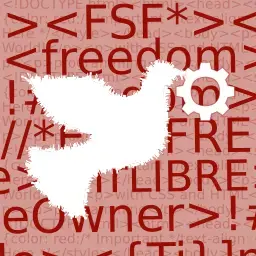A couple of devs created indie-wall.com for creators to promote their work. The site has recently been re-launched to include many types of Indie content, not just games, and we are hoping to flesh out our list of good tools.
Extra points go to tools that not many people know about. Godot is good, but most people already know about it. Please post your recommendations here. If you take the extra time to post it to the site, that would of course be appreciated, but please do be sure to share your recommendations with this community.
Is Indie-Wall itself Libre ?
For pliers etc, always Knipex
Should I have specified software tools?
Some more guidance or examples might help, since ‘tools’ and even ‘software tools’ is a bit broad. Looking at the site, is it game creation tools that you are looking for?
Some that come to mind
- Krita for art / design (also Gimp, Inkscape, etc.)
- Blender for 3D
- LibreSprite for “for creating and animating your sprites” (I haven’t tried it but I’ve heard of it)
- Makehuman for character creation (I haven’t tried it but I’ve heard of it)
- OBS Studio for screen recording / streaming
- KDenlive for video editing
- Audacity for audio editing
- Upscayl for local AI image upscaling
- Various tools for development (ex. vs codium)
There are also various free websites for collecting assets, images, videos, audio, playing around with colour palettes. Then there are also non-game development related tools (ex. Signal for messaging, LocalSend for local file sharing) etc.
You can also try asking in !opensource@programming.dev :)
Thanks, there are some interesting ones in that list.
They don’t necessarily have to be for games, in fact we are trying to expand the site’s horizons past games.
Did you know that Signal was funded by the CIA, and used the platform’s users as cover for their communications of operations in foreign countries?
They don’t necessarily have to be for games, in fact we are trying to expand the site’s horizons past games.
I’ll see if I can find anything else then!
Signal was funded by the CIA
So I looked into this back when that article came out, and the first part was very misleading. I worry that bad actors keep spreading that in order to push people towards dangerous alternatives. The source pushing that claim was also saying that TOR was a honeypot, without offering much evidence for it. Journalists around the world rely on TOR to communicate with vulnerable sources, and scaring people away from TOR is dangerous.
The past discussion is here, and I’ve copied some of it below: https://lemmy.ca/post/16397504/7661724
CIA → RFA → OTF → Signal
My understanding is that the CIA operated a news agency in the 50s, then decades later the 2012 president of the news agency started the Open Technology Fund to “help better protect reporters and sources for the news organization with enhanced digital security technology”. That organization made (publicly documented) investments in projects including the Tor Project and Signal. Even if someone thinks the OTF is sinister, the total amount over 5 years was $3M.
used the platform’s users as cover for their communications of operations in foreign countries
This part is possible, and since I haven’t heard that claim before I don’t have anything on hand to comment on it directly.
I would argue that even if the CIA benefited from the presence of encrypted communication in the past, Signal does more than enough good in the world protecting people from surveillance, oppression, and censorship that it is worth recommending.
Since the app is open source and constantly scrutinized, I trust that any shady changes to the code will be caught and called out quickly.
I suppose it all depends on how comfortable someone is getting close to the CIA. At the very least, I think people should know who they are dealing with when signing up to a platform like that. It would be naïve to think that an organisation like the CIA funds their interests directly.
TOR was also funded and initially developed by the US Gorvernment as well (I think it was the Navy). It’s still best in class at what it does, and there’s been no evidence of any sort of back door in the long time it has been running. It was also likely a “more non-government users provide better masking for clandestine government work” situation as well.
Ghidra is one of the best software reverse engineering tools out there, and it’s an open source NSA project.
People absolutely should know, and ultimately what you do and don’t promote is up to you. That said, most people in privacy and cybersecurity communities do not have concerns about the government connection when the tools are open source and essily auditable.
Keeping in mind of course that getting cleared following an audit means nothing was found, not that no exploits exist.





